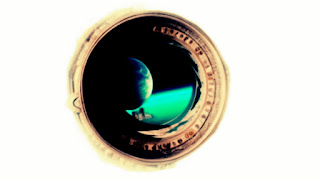In the limitless landscape of thinking and surroundings, we find ourselves in the middle of nowhere. It's not only we discover new things, but we find and know more about ourselves.
"The real voyage of discovery consists not in seeking new landscapes, but in having new eyes." - Marcel Proust
Knowledge has no limit. There are no limitations to knowing. We can learn as much as we can. Learning includes uncovering new things. Discovering new ways of doing things. Improving skills and shaping our understanding of a problem before solving it.
Think of the kinds of scientific knowledge we have in chemistry, biology, physics, and so on. Our civilization is built upon these kinds of knowledge. Exploration and discovery is an unending process of learning, understanding, and gaining new knowledge, insights, and skills.
We ask questions about our future, feelings, and the meaning of life. We try to be curious to discover answers to why, how, and when questions until when we perish. From medicine, mathematical expression, and engineering to trying to discover what we don't know about the universe and ourselves.
We explore our minds and our surroundings to discover what we don't know. Our world gives the light to see wonders of nature and life through breakthroughs in science and technology. We can understand ourselves and explain our world better by discovering the unknown.
Leading to discovery.
These are ways that enable us to get engaged in thinking and learning new things.
- Activities. Our world is full of potential. The opportunities for learning new things are in everything we do. In reading books, watching documentaries, and movies, in interaction online, or in sharing ideas with friends, and experts.
- Observe our surroundings. We may think that there is a limitation in knowing and discovering, but nature and life offer a lot to learn every day.
When we take a walk in nature we may discover new species of plants, animals, insects, and so on.
When we think critically our imagination allows us to discover new patterns of ideas which may enable us to interpret and explain new phenomena as they occur.
When we talk to our closest people like friends and family members we discover the experience of being a social individual.
"The best way to find yourself is to lose yourself in the service of others."- Mahatma Gandhi
- Nature, self-reflection, and imagination. We can discover ourselves when we embark on the journey to the road of curiosity and possibilities in life. Students for instance can discover new things if they freely let their curiosity carry them away through nature and imagination.
- Focus on contradicting ideas. re-examine them using proper procedures with an open mind. We discover the hidden meaning and explanations of problems by not being biased by one piece of evidence.
- Intuition and revelation discovery of new things can happen if only we have appropriate surroundings that make our minds think or relax.
Independent knowledge depends on justified evidence obtained intuitively and deducted.
Letting our minds indulge in imagination improves curiosity and creativity, therefore allowing us to discover knowledge and skills that are useful in solving problems in life.
Nature knows best. It's our originality and nature is the source of inspiration that opens curiosity to discover and navigate the limitations of learning. Rationalism and empiricism approach to evidence are ways to discover the knowledge of the external world, internal world knowledge or self-knowledge, and moral values.
Knowledge is like a bubble that expands as the mind discovers new patterns of ideas. There's a limit to the brain and mind's capacity to learn due to ageing, but discovery is a limitless life's mission. Awareness of our thinking, mental operations, and experience are responsible for gaining knowledge of our minds and surroundings.
Think of a toddler reaching up for an object that arouses his or her mind's curiosity. The very curiosity applies to an adult who sees something new or experiences a new problem or phenomenon. He or she tries to figure out it better by discovering ways of understanding and explaining it.
Taking your mind on the discovery trips is a natural observation of nature. The things that surround the mind are the things that speak with the universe. They communicate an important question to arouse curiosity and understanding that leads to discovery. The first sound heard and the image seen during exploration is the beginning of an interest in learning.
Allowing ourselves to be amazed by nature is a great thing. It's the beginning of discovery and learning. We can experience new things if we travel, walk, or meet new people. There are a lot of things out there for us to discover.




Thank you for reading!